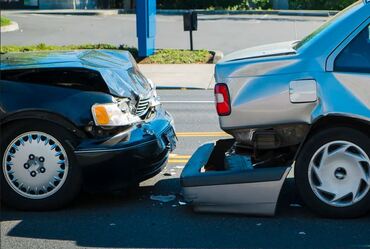Search

Brake checking accidents occur with more frequency in present-day driving because people express road rage and engage in aggressive tailgating and driving practices. The occurrences put human life at high risk and cause intricate disputes concerning responsibility. Everyone who comes across brake checking accidents needs to know correct post-accident steps because these procedures protect your rights and safety.
Drivers who purposely brake hard behind another vehicle with no valid reason commit brake checking which serves to either frighten or punish the following car driver. Brake checking normally emerges from anger because someone tailgates them or develops during road rage behavior. The abrupt halt from brake checking often leads to collisions in which the following vehicle hits the vehicle in front. Multiple vehicles can group together because of this avoidable action.
According to most state laws brake checking stands as an illegal behavior that constitutes reckless driving. The deliberate creation of traffic incidents as well as dangerous driving behavior constitutes illegal conduct that may produce several penalties.
Criminal offenses might be filed against brake checkers who injure any individuals.
Typically, it is difficult to establish responsibility in brake checking accidents. Rear-end collisions typically assign blame to the following driver but brake checking might change this pattern.
Liability Can Fall on: Drivers who brake-check before someone else have the legal responsibility to pay when proven guilty of reckless braking conduct. A rear driver bears fault if they keep a short distance between vehicles or are engaged in activities that divert their attention from the road. According to investigation findings that use dashcam recordings combined with eyewitness reports together with reconstructed accident evidence institutions identify fault responsibilities.
These steps must be followed after a brake checking incident to safeguard your position:
Always report the accident. You need a police report to process insurance claims although injuries may look unimportant at first.
Medical problems such as neck pain, brain or spine damage often take time to show after a car crash. Go to visit your doctor right away after this mishap.
Do not share words that suggest responsibility. Ask professionals to handle legal matters when you work with them but your attorney not you.
Inform your insurance company about the accident in a prompt manner while referring to actual events. Note when the other driver slowed unexpectedly behind you.
Cases involving brake checking prove difficult to handle because parties disagree about who was responsible. A personal injury lawyer who knows the field will defend your rights while assisting you to receive the greatest settlement. A victim of brake checking accidents can claim financial compensation for various losses When brake checking results in an accident you can claim these damages.
Brake checking incidents create more than hardship because they put your well-being at great risk. An involvement in this type of accident requires you to follow the right recovery steps and legal processes to receive a proper outcome. Contact a professional attorney to determine your available choices.